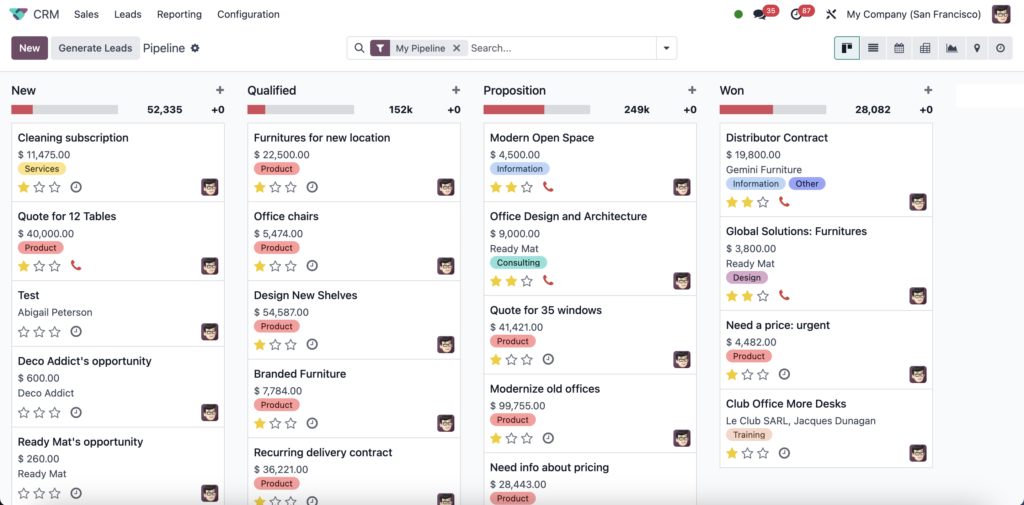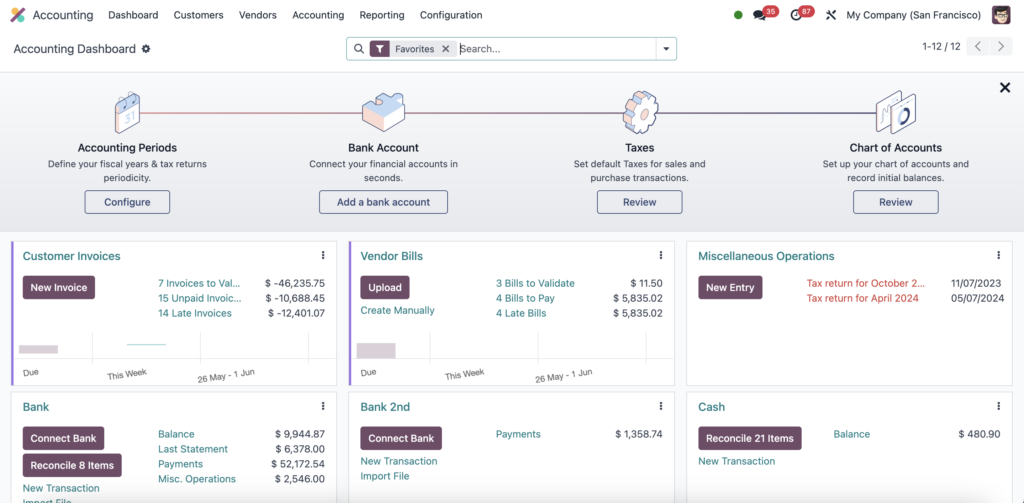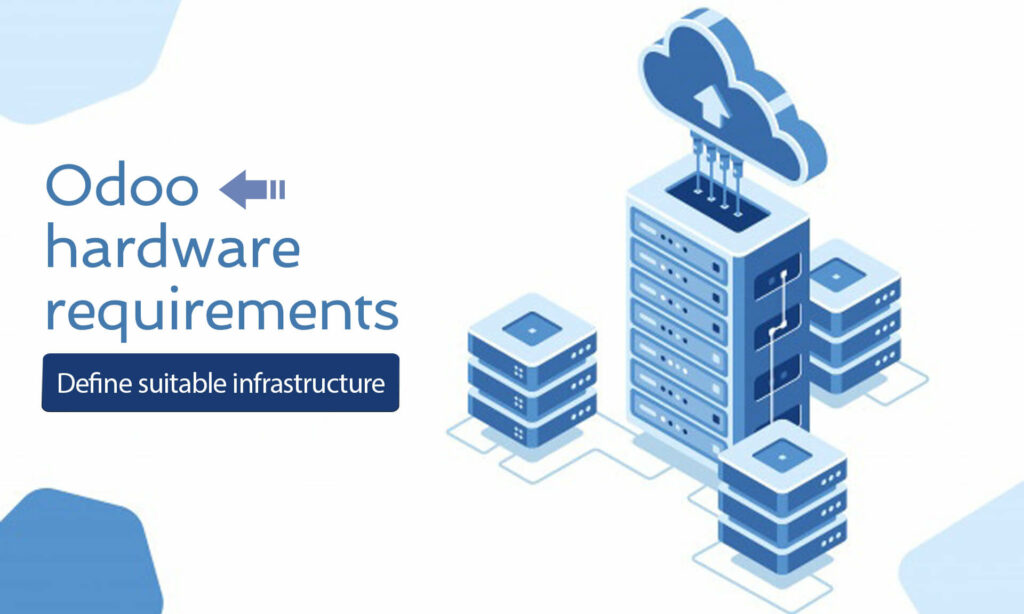An uninterrupted flow of data, timely service delivery, impeccable client service, billing automation, and performance transparency – looks like management perfection in its purest form and the ultimate goal of every company, doesn’t it?
While some companies only dream about such efficiency, others already enjoy all the benefits of the Odoo ERP for the service industry, building their sustainable and profitable existence in a digital environment.
What is the Odoo ERP system and how can the service companies benefit from it? Let’s discover together.
What Is Odoo?
Odoo is an ERP (enterprise resource planning) software that aims to streamline the entire business performance, introducing an ability to organize and monitor all business interactions and units through a single, all-encompassing platform. Its tools comprise customer relationship management, e-commerce, billing, accounting, manufacturing, warehouse, project management, and inventory management.
Odoo has a modular structure that allows businesses to build their automated infrastructure step-by-step, according to the increasing demands of the market, which is particularly valuable when choosing ERP for small and medium-sized service enterprise.
The usage of ERP systems like Odoo was once a simple commodity for business management; yet, in ever-increasing market competition, having ERP-based business management is rather a staple and key to efficient performance.
Odoo for Service Businesses
ERP systems are often referred to when the focus is on manufacturing companies, as their extensive load of interactions and material flow require an impeccable organization, which can only be provided by well-configured ERP systems.
Service companies, unlike manufacturers, are more concentrated on information and data flow, requiring tools for financial management, resource allocation, customer services, time tracking, and more. All the countless requests can be addressed by a single solution – Odoo ERP for Service Companies.
The Odoo Features That Benefit Service Companies
Full overview of business operations
Imagine a central control station that manages all the incoming and outgoing requests and interactions with the help of numerous buttons; quite comfortable, isn’t it?
Odoo ERP system for the service industry is just the same, yet, all the buttons have a digitized form, and all the business units are represented with different modules. Together they form a unified view of the business – the central interface, with the possibility to access the required data in an instant.
Therefore, instead of having all the business divisions working separately, Odoo ERP brings them all together, maximizing performance efficiency. Now, instead of numerous requests regarding multiple interactions and reports, managers have all the data within a few clicks, which saves time and enhances business productivity.
Full lead-to-invoice automation

Odoo CRM Sales Pipeline
The majority of service companies follow the same lead-to-invoice algorithm; its efficiency impacts the company’s overall performance. Odoo ERP brings automation to the entire funnel of activities, reducing order processing times and benefiting overall functioning.
For instance, the system can automatically count the successful leads, the number of sales orders generated from subscriptions, etc. With Odoo ERP, burdensome data processing is turned into instant reporting from a single source of information.
Error-rate reduction
We live in an era of never-before-seen tech progress; however, in this advanced era, when machines can recognize and imitate human behavior, companies still struggle with financial losses due to man-made mistakes. A one-second distraction can cost tens of thousands of dollars, and possibly even worse – the reputation; that’s why companies choose Odoo ERP for professional services.
Odoo ERP helps to reduce mistake rates, thereby enhancing business outputs while increasing financial and reputational gains.
Automated invoicing

Odoo Accounting Dashboard
Invoices are the most important financial part of the service company; however, their manual form is error-prone and rather time-consuming, which is unacceptable in the fast-evolving digital landscape.
Odoo service business ERP software allows the timely generation of accurate client invoices, keeping track of the entire invoice history.
Automated reporting
The importance of reports is hard to overestimate – they allow businesses to navigate through constant market changes and be fully prepared for the current market demands.
Odoo ERP system allows companies to generate reports about different areas of business performance, and thus, monitor their own daily activities, identify the areas that need improvements, and make data-driven decisions. What’s even more important, all the reports and insights are within a few clicks.
The Final Thoughts
Odoo ERP solution is like an omnipresent digital assistant that is aware of all the company’s activities. With access to a single platform, business management gets access to a multitude of opportunities – optimized customer services, financial management, resource planning, reports generation, timely reports, and so on.
With the implementation of Odoo software, company management, and enhanced control, your company can undergo a qualitative transformation, increasing your company’s overall improvement and productivity.
Ready to transform your service delivery with Odoo ERP?
Recommended articles:
- From Manual to Automated: How Odoo ERP Helped a Swiss IT Service Company to Grow Turnover 2.5 Times
- Top 10 Reasons to Choose Odoo ERP for Your Business
- Best ERP Systems For Small and Medium Businesses
- ERP Mistakes and How to Avoid Them
----------------------------------------------------------------------
Education: Bachelor's degree.
----------------------------------------------------------------------
Experience:
Marketing manager
VentorTech
----------------------------------------------------------------------
Current position: Marketing manager VentorTech
----------------------------------------------------------------------
B2B Marketing
Google Tag Manager and GA
Motion Graphics Production






0 Comments